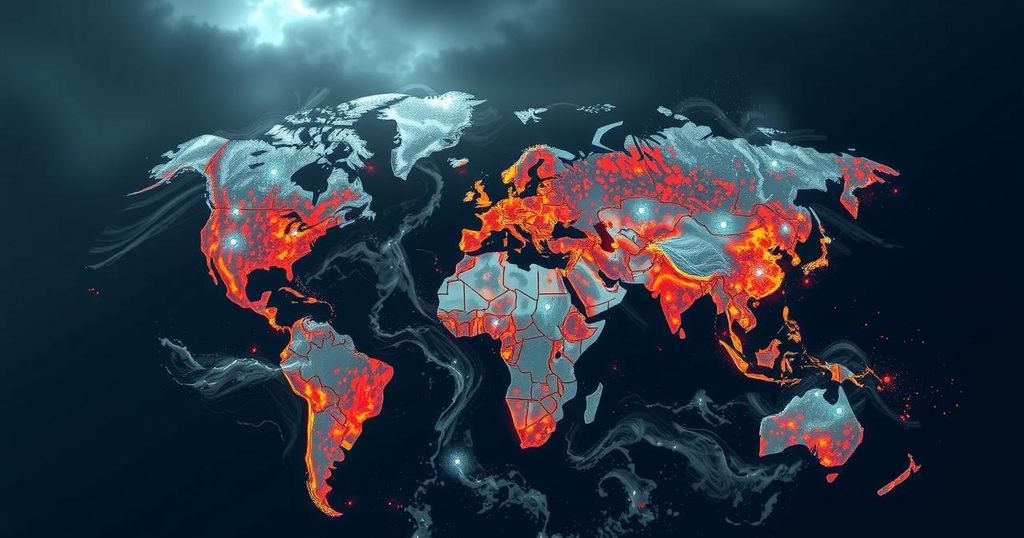Save the Children reports that approximately 300 million children globally have been significantly impacted by ten major extreme weather events in 2024, as leaders prepare for COP29. The organization emphasizes the urgent need for addressing climate justice and incorporating children’s rights in climate discussions, highlighting personal stories of affected children in Nigeria and Zimbabwe as well as the broader implications of these events in low- and middle-income countries.
Recent research conducted by Save the Children indicates that approximately one in eight children globally, equating to around 300 million, have been deeply affected by ten major extreme weather events throughout 2024. From January to October, these events disrupted lives, forced families to flee their homes, and led to significant school closures. The findings were released as world leaders prepare for the COP29 summit in Baku, Azerbaijan, highlighting the urgency of addressing climate change’s impact on children, particularly in low- and middle-income countries. The events causing significant distress included Tropical Storm Trami in the Philippines, drought in Southern Africa, and an unprecedented heatwave across South Asia. The circumstances demonstrate that children are often the most vulnerable victims of climate crises, leading to educational interruptions and reliance on humanitarian aid. Children adversely affected range from Kyariyam in Nigeria, who witnessed her home flooded and schooling disrupted, to Zinhle in Zimbabwe, who faces acute hunger due to delayed planting seasons caused by severe drought. Save the Children emphasizes that these circumstances illustrate a crucial climate justice issue, urging global leaders to prioritize children’s rights and voices in climate discussions. The analysis also underscores a disturbing trend in climate change, with a reported fivefold increase in extreme weather events over the past fifty years, indicating that immediate intervention is necessary to mitigate ongoing and future crises. Save the Children is calling for integration of children’s needs in climate adaptation strategies and increased opportunities for child participation in decision-making processes. The organization asserts that addressing the impact of climate change on children is not only a moral obligation but a pressing necessity for the future of vulnerable populations.
Climate change has led to an alarming rise in extreme weather events, disproportionately affecting children, especially in low- and middle-income countries. In 2024, significant weather disasters have impacted millions of children worldwide. As world leaders convene for COP29 in Azerbaijan, the analysis by Save the Children sheds light on the urgent need to place children’s rights at the forefront of climate discussions. The ramifications of these disasters include displacement, educational disruption, and increased reliance on humanitarian assistance. The research underscores the ongoing challenges posed by climate change and the necessity for immediate action to safeguard vulnerable populations.
The findings presented by Save the Children highlight the critical impact of extreme weather events on children, demonstrating an urgent call to action for global leaders at COP29. With significant numbers of children affected by climate disasters, there is a pressing need for comprehensive strategies that prioritize children’s rights and amplify their voices in climate change discussions. As climate change continues to escalate, it becomes increasingly vital to ensure that the needs of the world’s most vulnerable populations are addressed effectively.
Original Source: reliefweb.int






